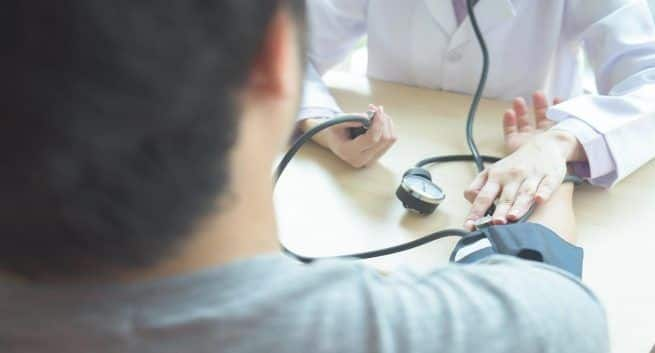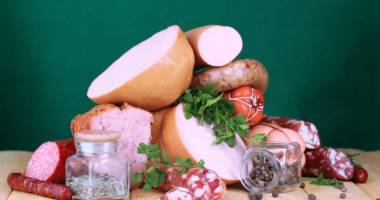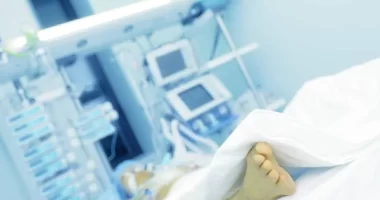
The world has been battling the microscopic villain, Covid-19, for over a year now and there seems no stopping in its surge. But the ferocious second wave of coronavirus has put more lives in jeopardy than before, especially those with comorbidities. People who suffer from diseases such as diabetes, hypertension, heart problems and another fall in the high-risk category.
Dr Santosh Kumar Dora, Senior Cardiologist, Asian Heart Institute, Mumbai, “A growing body of research suggests that some people with hypertension, diabetes and heart disease may develop more severe symptoms and complications once infected with the coronavirus.” Hypertension is often referred to as “the silent killer” that can be easily missed. If left untreated, the high force of blood against the artery walls can damage blood vessels, which can lead to heart diseases and damage multiple other organs such as the kidney, eyes, and brain.
The Link Between Hypertension And Covid
Several studies have shown that those with hypertension, diabetes, coronary artery disease, obesity is more likely to suffer from Covid. Analysis from various researches suggests that high blood pressure is the most commonly found pre-existing medical condition among those hospitalized with Covid-19. According to a document issued by the Indian Council for Medical Research, people with an underlying medical condition are more likely to suffer from more severe symptoms and complications of Covid-19.
As per the expert, a weak immune system along with increased stress levels, lack of outdoor exercise due to frequent lockdowns as well as unhealthy dietary patterns may lead to the onset of coronavirus. Dr Dora highlights that managing high blood pressure is essential during the Covid-19 pandemic. You should check your hypertension at regular intervals. If it is over 80/120 mmHg (normal BP), you should be treated to maintain it.
Also, high blood pressure damages the arteries and makes it harder for them to pump blood, which weakens it over time. Similarly, coronavirus can have a negative impact on the heart and damage it. So, Covid-19 can have a worse impact on your heart if you have high blood pressure, and your heart is already weak. According to a study published in the National Institue of Health, comorbidities such as hypertension accelerate atherosclerosis, which leads to cardiovascular complications and may increase the severity and mortality of COVID-19. Another study conducted by the Journal of Allergy and Clinical Immunology found the prevalence of hypertension was higher in patients with symptoms of severe Covid.
Managing Hypertension Amid Covid-19 Pandemic
Considering how big of an impact high blood pressure has on Covid-19, and vice versa, it is essential to find ways to keep your blood pressure numbers in check. The normal blood pressure is between 80/120 mmHg. If your BP is over the normal range, then here are some ways to maintain it. Here are some ways recommended by Dr Santosh Kumar Dora.
Manage Prehypertension
Prehypertension is when the systolic blood pressure is between 120 to 139 mmHg, and the diastolic number is between 80 and 89 mmHg. In other words, it is a warning sign that you may get hypertension in the future. Controlling high blood pressure at this stage can help manage it early and lower the chances of contracting any disease.
Physical Exercise Is A Must
Time and again, studies have stressed the importance of physical exercise to keep diseases at bay, and hypertension is no different. Regular exercise is an effective way to bring down the systolic blood pressure by 4 to 9 mmHg. It also helps you control your weight, which is a major factor that leads to the onset of hypertension. Aerobics, strength training, yoga, Zumba, etc. – you can choose from an array of different workouts to manage your blood pressure levels. He continues that exercising regularly for 30 to 45 minutes a day may help.
Don’t Skip Medication
Someone with the problem of high blood pressure should begin taking medication as prescribed by a certified medical practitioner. Avoid self-medication or skipping the medication. You need to follow a medication procedure that helps you keep your blood pressure within range. Stopping medications as soon as your numbers show a dip is not a good idea, so do not stop taking the medication until your doctor advises. Your blood pressure numbers may go back to the initial level and may even shoot up to higher levels, which could lead to serious complications.
Try Dash Diet
Eating a heart-healthy diet is vital for managing blood pressure and reducing your risk of heart disease, stroke, and other diseases. Dietary approach to stop hypertension (DASH) is one of the best diets for people suffering from hypertension. It includes whole-grain cereals, fruits, vegetables, legumes and nuts, low-fat dairy products, lean meat, fish, and less salt. When following this diet, you should restrict your intake to less than 2300 mg (5 mg) of sodium per day. A study published in the British Medical Journal found that restricting your salt intake can lower blood pressure levels, especially in those with high blood pressure.
Avoid Smoking
From hypertension to cancer to diabetes, smoking has been a contributory factor in several diseases, and it is important that people steer clear of this dangerous habit. Dr Dora says that each cigarette you consume increases your blood pressure temporarily for several minutes after you finish. Avoiding all forms of tobacco as well as second-hand smoke can help maintain your overall health and mitigate the risk of heart attack and stroke.
Cut Back On Alcohol
Drinking too much alcohol can raise blood pressure to unhealthy levels. When you drink more than three drinks at once, it leads to a temporary spike in your blood pressure. And done on a regular basis can lead to long-term consequences. Avoid alcohol or drink in moderation if you are someone suffering from hypertension, recommends Dr Dora. Studies have shown that heavy drinkers who cut back to moderate drinking have successfully reduced their systolic as well as diastolic blood pressure.
Note: In case you suffer from high blood pressure and notice symptoms of Covid-19, consult your doctor immediately to avoid complications. Also, practice all precautions to stay safe! source
This post first appeared on The Health Site








